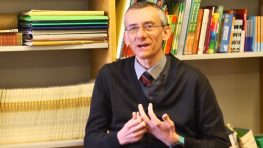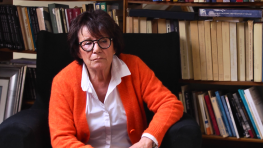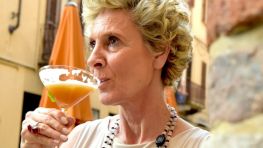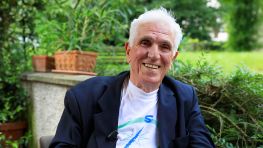
Shujaul Mulk Khan
Ecosystem, tradition and religion in the Pashtun culture
Shujaul Mulk Khan is an Assistant Professor in Ecology at the Quaid-i-Azam University in Islamabad.
Guest of the University of Gastronomic Sciences, Shujaul Mulk Khan tell us is research field and how that begins in his region, on the Himalaya mountain in a Pashtun village.
In this long interview we discover the close relationship between the ecosystem, the culture of a population and biodiversity. Shujaul Mulk Khan explaining us the role of the Islamic religion within the Pashtun culture and introduces us to various aspects of the traditions of a population living in the northwest region of Pakistan. There is a delicate balance established over the centuries between the culture, traditions and the local ecosystem, balance today endangered by the influence of capitalist culture.
Video table of contents
- Relations between ecosystem and culture
- I started my research from my village at 900 meters above sea level in the Himalayas
- Conservation projects of the ecosystem and local culture
- Biodiversity and ethnodiversity: streets, music, dance and massages
- Globalization and social relationships
- Islam vuol dire pace: ruolo positivo della religione nel preservare usi
- Pashtun culture is in harmony with religion
- Sciiti e sunniti: tradizioni, similitudini e differenze
- Quantity Vs quality
- My favorite food: yogurt prepared by my mother when I go back to the village
- Traditional and globalized education
Interview information
Country: PK
Region: Territorio della capitale Islamabad
City: Islamabad
Shujaul Mulk Khan
Date of birth: 03-01-1980
City: Swat, Pakistan
School: University
Profession: Teacher/Professor
Languages: Inglese
Document by: Luca Percivalle
Video by: Luca Percivalle
Created: 22-02-2018
Questo video fa parte del seguente archivio
Life Stories
Life Stories
This section contains life stories: autobiographies and stories that don’t belong to any specific project. It is an archive where you can find recounts of completely different kinds of lives, which are virtually united by the fact that every human cycle finds its individual worth in the comparison with another. The narration becomes an experience for the interviewed subject, who finds himself through storytelling. Archive made with the contribution of the Piedmont Region.






